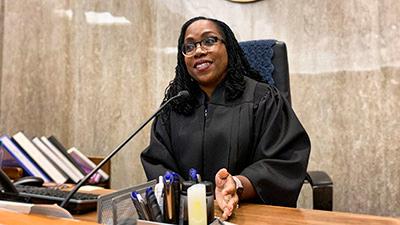News Analysis
If she’s confirmed by the U.S. Senate and becomes the first black woman to serve on the Supreme Court—and if her judicial track record so far is any guide—Ketanji Brown Jackson will probably be a reliable member of the high court’s three-member liberal bloc.





